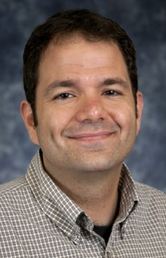By Jason Boone
Wars don’t end when the last shot is fired. After the organized campaigns cease, the residue of violence and pain lives on in the minds, bodies and souls of everyone touched by the conflict. This includes the soldiers who participated, directly or as witnesses, in the destruction of war.
As the US military forces continue to be withdrawn from places like Afghanistan, the soldiers who come home face severe challenges re-entering civilian life. Physical, mental and spiritual wounds acquired in combat can take a lifetime to heal. For many, the pain is too intense and the urgency for relief results in the epic wave of suicides among veterans (22 each day).
As peacemakers, many of us spoke out against the wars in Iraq and Afghanistan. Through political outlets and through prayers, we tried to stem the tide of war. The machinery was already in motion, however, and would not be stopped.
Now the same wars come home to our communities, disguised as the suicides and other self-injurious behaviors some veterans adopt as mechanisms to deal with the trauma of what they experienced. Peacemakers have another opportunity to oppose war, this time on a very personal and relational level. The prophetic voice will take the form of compassion and empathy with the soldiers struggling to find wholeness and healing in the aftermath of war.
Many Mennonite Church USA churches and conferences are taking on this role of helping veterans find healing. The Peace and Justice Support Network is working closely with Mennonite Central Committee to provide support to those involved with veterans.
One such support is a monthly newsletter that features resources and ideas for churches working with or hoping to work with veterans. You are invited to subscribe. In a recent issue, we interviewed Ken Landis of New York Mennonite Conference. Ken holds a unique position with the conference. He is helping folks there find ways to be good neighbors to the veterans and military base in their area.
“The simplest way I like to state it is ‘How can we be better neighbors?’ especially in light of our theological roots of Peace and Non-Violence,” said Ken.
Being a neighbor to returning veterans at this time is as important as marches, petitions and prayer vigils were before the wars began. We won’t be able to help every veteran, but we can walk faithfully the radical path of Jesus, who taught that being a neighbor will put us in relationship with those harmed by violence.
For many veterans who survived recent wars, the violence never ceases. They wait, not for the righteous or the religious, but for the neighbor.


